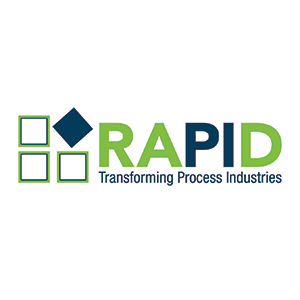
The Texas A&M Energy Institute and the Rapid Advancement in Process Intensification Deployment (RAPID) Manufacturing Institute, a Manufacturing USA Institute under the U.S. Department of Energy and operated by the American Institute of Chemical Engineers, have joined forces to develop two online, eLearning courses that will provide learners with a basic understanding of computer-aided process intensification (PI).
“Education and Workforce Development is key to RAPID’s mission to advancing the process industries through modular chemical process intensification (MCPI). These courses fill key areas identified in the RAPID Process Intensification & Modular Processing Body of Knowledge and will be crucial in developing advanced processing skills in the current and future workforce.” says Ashley Smith-Schoettker, RAPID’s Director of Outreach, Education & Membership.
The two courses feature three instructors:
- Dr. Faruque Hasan, an Associate Professor and the Kim Tompkins McDivitt ’88 and Phillip McDivitt ’87 Faculty Fellow in the Artie McFerrin Department of Chemical Engineering at Texas A&M University.
- Dr. Mahmoud El-Halwagi, a professor and Holder of the Bryan Research and Engineering Chair at the Artie McFerrin Department of Chemical Engineering, and the Managing Director of the Gas and Fuels Research Center at Texas A&M University.
- Dr. Efstratios Pistikopoulos, the Director of the Texas A&M Energy Institute, the Dow Chemical Chair, and a Professor in the Artie McFerrin Department of Chemical Engineering at Texas A&M University.
The first course, Process Design for Process Intensification, provides learners with a basic understanding of computer-aided PI and design methods. It spans the topic from a basic introduction of design methods to different representation and optimization-based approached for generating process flowsheets with PI alternatives. There are four modules in this course.
The first module provides a brief introduction to process design approaches that can be applied to PI. Learners will learn how to formulate a design problem, learn the elementary steps of systematic process design and intensification, and learn how to evaluate a process flowsheet and compare different flowsheets using various economic, environmental, and operational criteria. In the second module, learners will learn how to determine performance targets for mass and energy intensity, how to develop design implementations for reaching intensification targets, and finally, how to establish tradeoffs among various intensification objectives.
In the third module, learners will learn how to use different phenomena, tasks, and unit operations to construct both intensified and non-intensified process flowsheets, and how to represent and generate alternative process flowsheets and how to quickly screen the alternatives. In the final module, learners will learn how to identify various intensification pathways, how to identify optimal design and connectivity of intensified unit operations, and how to design and screen plausible flowsheets with process intensification.
The second course, Modeling and Simulation for Process Intensification, provides learners with a basic understanding of computer-aided process modeling and simulation of various PI technologies and designs. There are four modules in this course.
The first module provides a brief introduction to modeling and simulation approaches that are relevant to PI. The second module describes in detail how modeling and simulation of steady-state reaction, separation, reactive separation and hybrid systems can be performed with examples.
The third module extends to dynamically intensified process systems, and equips the learners with state-of-the-art modeling tools for dynamic process simulation and optimization. The final module discusses special topics in PI, such as model-based process flexibility, safety and operability analysis of intensified process systems.
Find more PI-related courses, webinars, and presentations at https://rapid.aiche.org/training-education
